Dark countertops can be a bold and sophisticated choice for small kitchens, adding a touch of elegance and contrast to the space. When chosen and integrated thoughtfully, they can transform the aesthetic and functionality of a small kitchen, creating a visually striking and practical environment. One of the key benefits of dark countertops is their ability to anchor a room, providing a strong visual foundation that balances lighter cabinetry and walls. This contrast can make a small kitchen feel more dynamic and well-defined, rather than cramped and monotonous.
Moreover, dark countertops often come in materials that are highly durable and low-maintenance, such as granite, quartz, and soapstone. These materials are not only resilient against scratches, stains, and heat but also easy to clean, making them ideal for the frequent use a small kitchen typically experiences. Granite and quartz, in particular, offer a range of dark shades, including deep blacks, rich browns, and elegant dark greens, providing various options to suit different design preferences.

Incorporating dark countertops in a small kitchen also allows for a more cohesive integration of modern appliances, many of which come in stainless steel or black finishes. The dark countertop can help these appliances blend seamlessly into the overall design, creating a unified look. This can be especially useful in small kitchens where every design choice significantly impacts the overall aesthetic.
Lighting is a crucial factor to consider when using dark countertops in a small kitchen. Adequate lighting can prevent the space from feeling too dim or confined. This can be achieved through a combination of natural light, task lighting, and ambient lighting. Pendant lights over the countertop, under-cabinet lighting, and strategically placed recessed lights can all help to illuminate the workspace effectively, highlighting the beauty of the dark countertops and ensuring the kitchen remains functional.
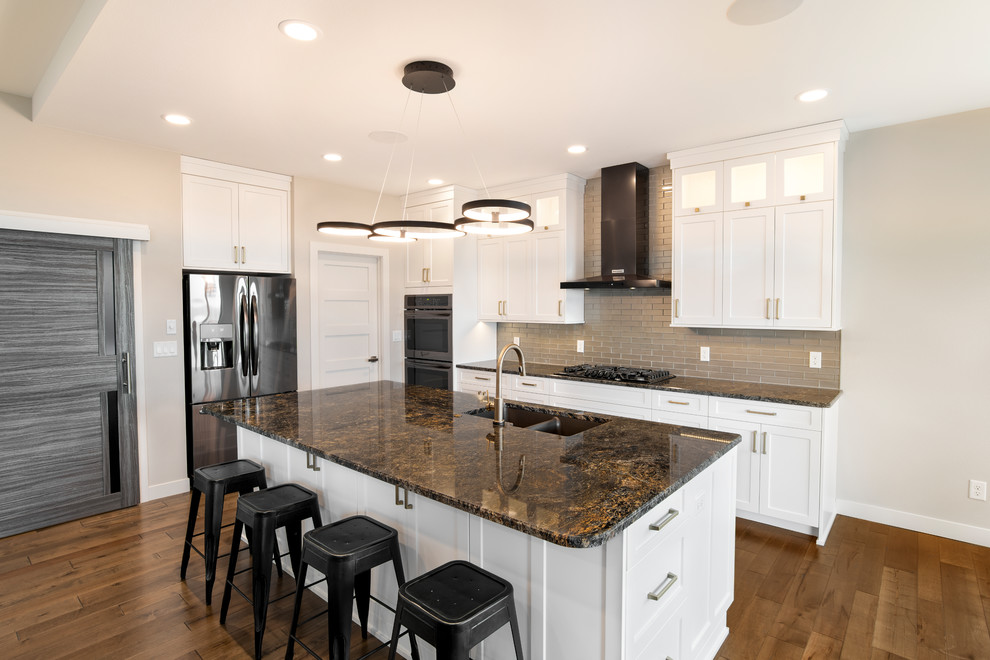
Another design aspect to consider is the use of reflective surfaces and light-colored backsplashes. A glossy finish on the countertops can reflect light, adding a sense of depth and dimension to the space. Pairing dark countertops with a light, reflective backsplash can create a striking contrast while bouncing light around the room, helping to counterbalance the dark surfaces and prevent the kitchen from feeling too enclosed.
Open shelving and glass-front cabinets can also be beneficial when working with dark countertops in a small kitchen. These elements can lighten the visual load and create an airy feel, counteracting any potential heaviness from the dark countertops. They also provide opportunities to display attractive dishware and decorative items, adding personality and charm to the kitchen.

When selecting cabinetry to complement dark countertops, light and neutral colors often work best. White, cream, light gray, and pale wood tones can create a bright and welcoming contrast. However, for those who prefer a more dramatic look, deep navy or charcoal gray cabinets can also pair beautifully with dark countertops, creating a cohesive and sophisticated palette.
Texture plays an important role in the overall design as well. A matte finish on the dark countertops can add a tactile quality and a modern feel, while a polished finish can enhance the luxurious appearance. Combining different textures, such as smooth countertops with textured tile backsplashes or rustic wooden accents, can add interest and depth to the design.
Maintenance is another critical consideration. Dark countertops, while stylish and functional, can show fingerprints, smudges, and water spots more readily than lighter surfaces. Regular cleaning and the use of appropriate cleaning products can help maintain their pristine appearance. It’s also essential to follow the manufacturer’s recommendations for care and maintenance to ensure the longevity of the countertops.

For those concerned about resale value, dark countertops can be a selling point if they are part of a well-designed and cohesive kitchen. Many potential buyers appreciate the luxurious and contemporary feel that dark countertops can bring, particularly when paired with high-quality materials and finishes throughout the kitchen.
Cost is another factor to consider. Dark countertops can vary significantly in price depending on the material chosen. Granite and quartz are often more expensive but offer superior durability and a high-end look. Alternatives such as laminate can provide the dark aesthetic at a lower cost, though they may not offer the same level of durability and longevity.
Incorporating personal style is crucial when designing a small kitchen with dark countertops. Accessories such as colorful dish towels, vibrant small appliances, and decorative items can add pops of color and personality, ensuring the space feels warm and inviting. It’s important to strike a balance between functionality and aesthetics to create a kitchen that is both beautiful and practical.
Last, consider the overall style and theme of your home. Dark countertops can fit well with various design styles, from modern and contemporary to rustic and traditional. Ensuring that the kitchen design aligns with the rest of your home’s decor can create a harmonious and cohesive look.

Common Mistakes to Avoid
When integrating dark countertops into a small kitchen, several common mistakes can detract from the overall effectiveness and appeal. One mistake is insufficient lighting, which can make the space feel dark and cramped. It’s essential to incorporate ample lighting solutions to highlight the countertops and create a bright and functional workspace.
Another mistake is neglecting contrast; pairing dark countertops with dark cabinetry and walls can make the kitchen feel even smaller. Balance is key, and using lighter colors for cabinets and walls can help create a more open and airy feel.
Failing to consider the maintenance requirements of dark countertops can also be problematic. Some materials may show smudges and stains more easily, requiring regular cleaning to maintain their appearance. Choosing the right material and finish that fits your lifestyle and maintenance preferences is crucial.
Last, overlooking the overall design coherence with the rest of the home can result in a disjointed appearance. Ensuring that the kitchen design complements the rest of your home’s style can enhance the overall aesthetic and value.

Will dark countertops make my small kitchen look even smaller?
Dark countertops can create a dramatic and sophisticated look in a small kitchen without making it feel smaller, provided they are balanced with adequate lighting and lighter cabinetry or walls. The contrast can help define the space, giving it a more structured and elegant appearance. Proper lighting, such as pendant lights, under-cabinet lighting, and natural light, can also help maintain a bright and open feel.
Are dark countertops difficult to maintain?
The maintenance of dark countertops depends on the material. Some materials, like granite and quartz, are highly durable and resistant to stains and scratches but may show smudges and fingerprints more readily. Regular cleaning with appropriate products can keep them looking pristine. It’s essential to follow the manufacturer’s care recommendations to ensure the longevity and appearance of the countertops.
What are the best materials for dark countertops in a small kitchen?
Granite, quartz, and soapstone are popular choices for dark countertops due to their durability and low maintenance. These materials are resistant to heat, scratches, and stains, making them ideal for kitchen use. Each offers a range of dark shades, from deep blacks to rich browns and greens, allowing for customization based on your design preferences.
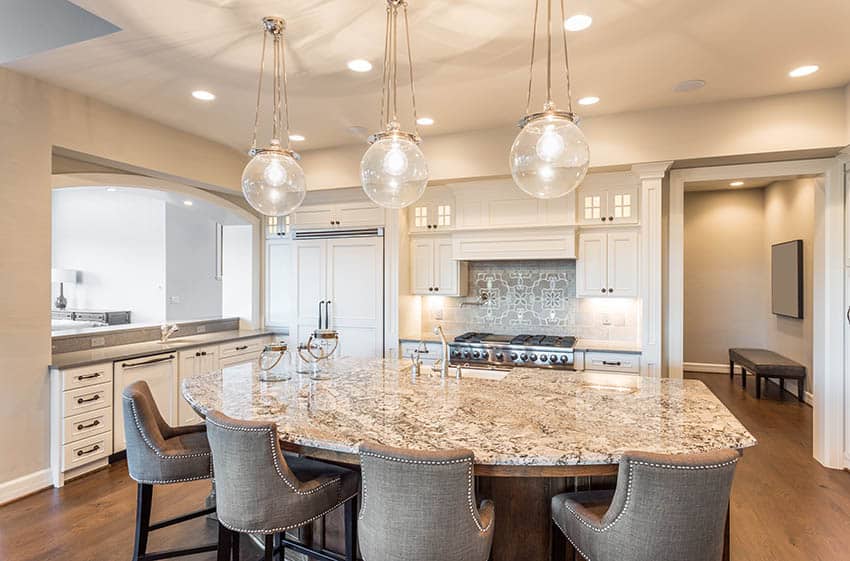
How can I ensure my small kitchen with dark countertops is well-lit?
To ensure adequate lighting in a small kitchen with dark countertops, use a combination of natural light, task lighting, and ambient lighting. Pendant lights over the countertops, under-cabinet lighting, and strategically placed recessed lights can effectively illuminate the space. Reflective surfaces and light-colored backsplashes can also help bounce light around the room, enhancing the brightness and openness of the kitchen.
Can dark countertops work with different kitchen styles?
Yes, dark countertops can complement various kitchen styles, from modern and contemporary to rustic and traditional. The key is to ensure the overall design is cohesive and that the dark countertops align with the kitchen’s style and the rest of the home’s decor. Pairing dark countertops with appropriate cabinetry, lighting, and accessories can create a harmonious and visually appealing design.
What should I consider when pairing dark countertops with cabinetry?
When pairing dark countertops with cabinetry, consider using light and neutral colors for the cabinets to create a bright and welcoming contrast. White, cream, light gray, and pale wood tones can complement dark countertops effectively. For a more dramatic look, deep navy or charcoal gray cabinets can also work well, creating a cohesive and sophisticated palette. Texture and finish are also important, with matte or polished finishes adding different tactile qualities and enhancing the overall design.
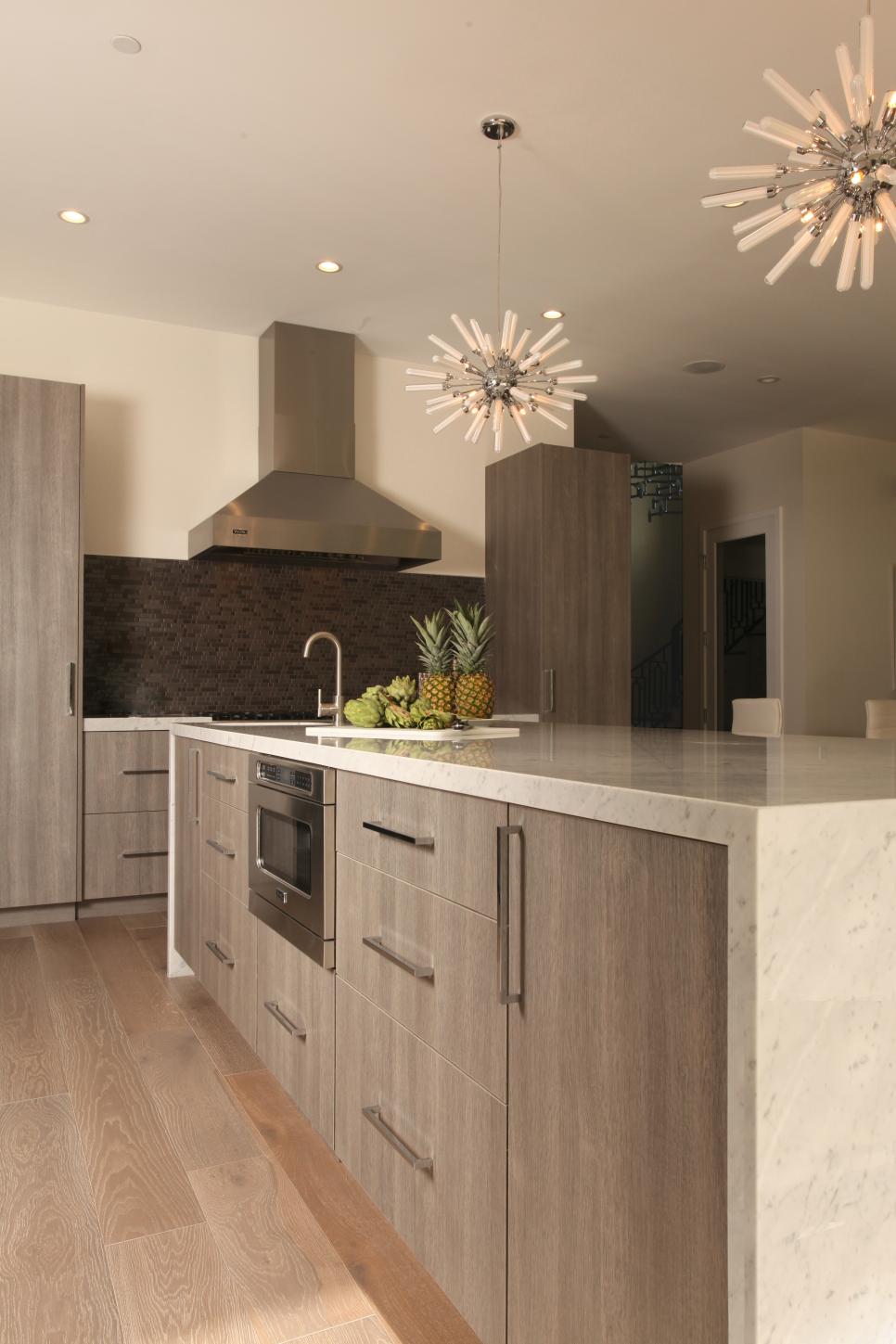
Delightful Kitchen Designs With Marble Flooring For Luxurious Look
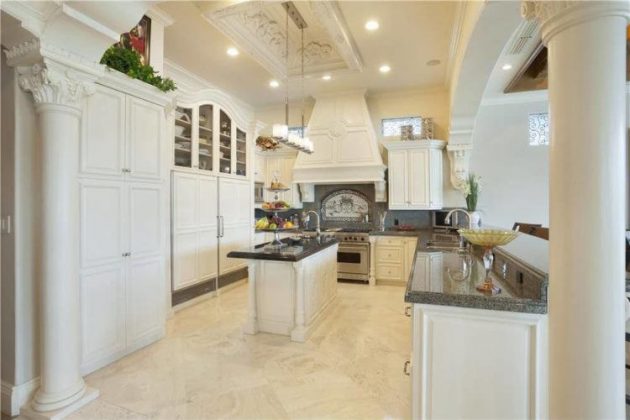
Most Durable Kitchen Countertops (Pros & Cons)
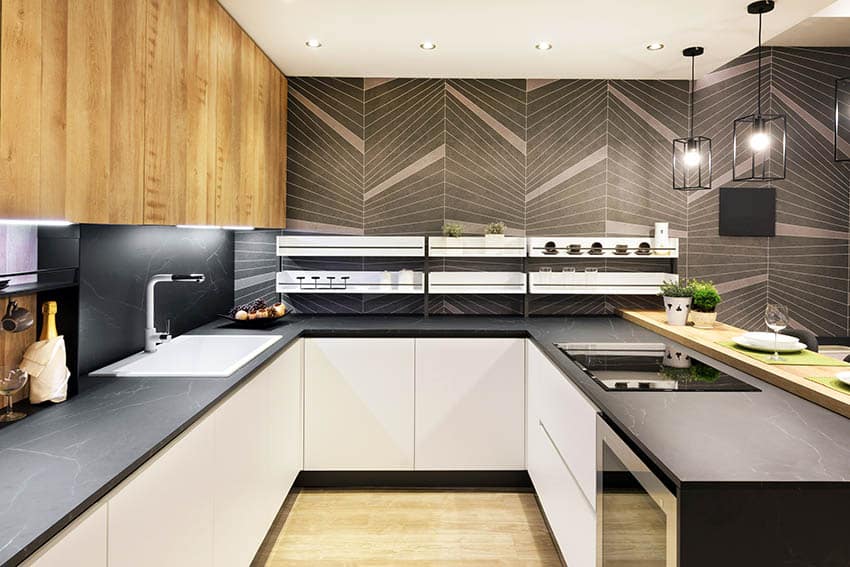
DIY Black Kitchen Countertops Mountain Modern Life
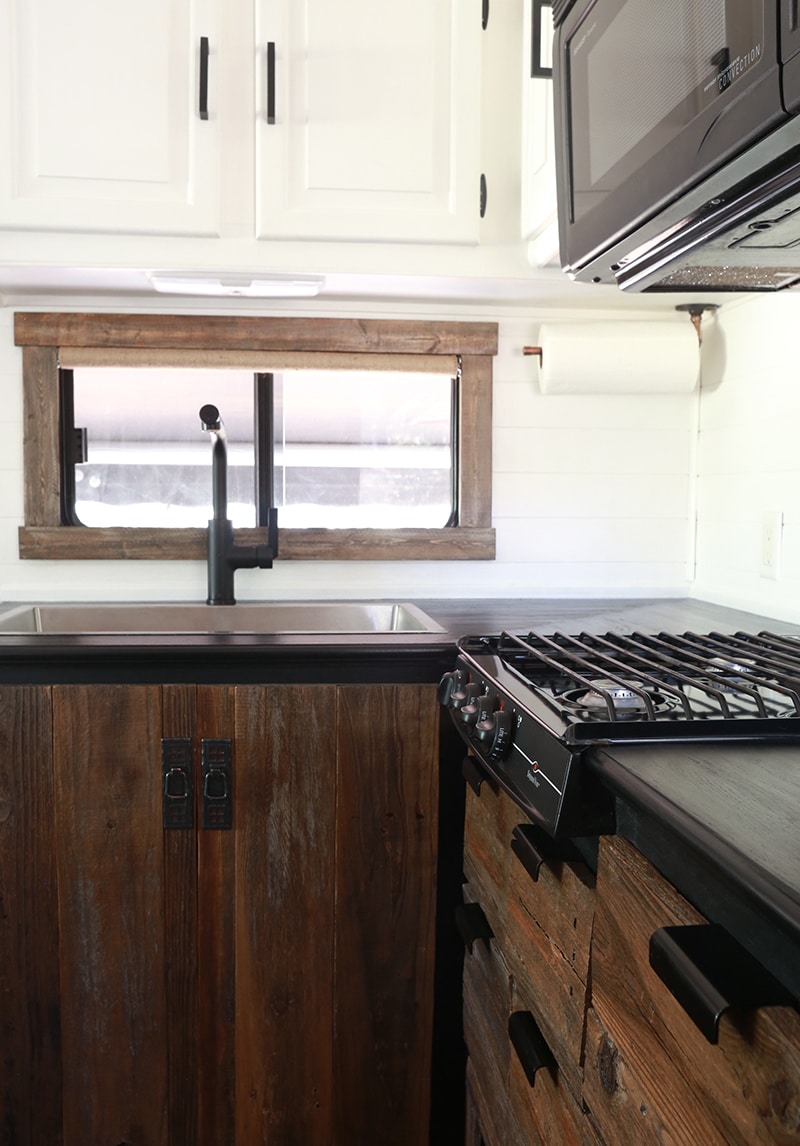
Kitchen Countertop Ideas & Pictures
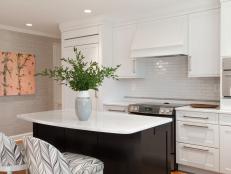
Related Posts:
- Outdoor Kitchen Granite Countertops
- Kitchen Sinks And Granite Countertops
- Kitchen Countertops Albuquerque
- Kitchen Countertops Austin
- How To Decorate A Kitchen With Green Countertops
- Do It Yourself Kitchen Cabinets And Countertops
- Kitchen Countertop Coating
- New Style Kitchen Countertops
- White Formica Kitchen Countertops
- Granite Kitchen Countertops Price Per Foot